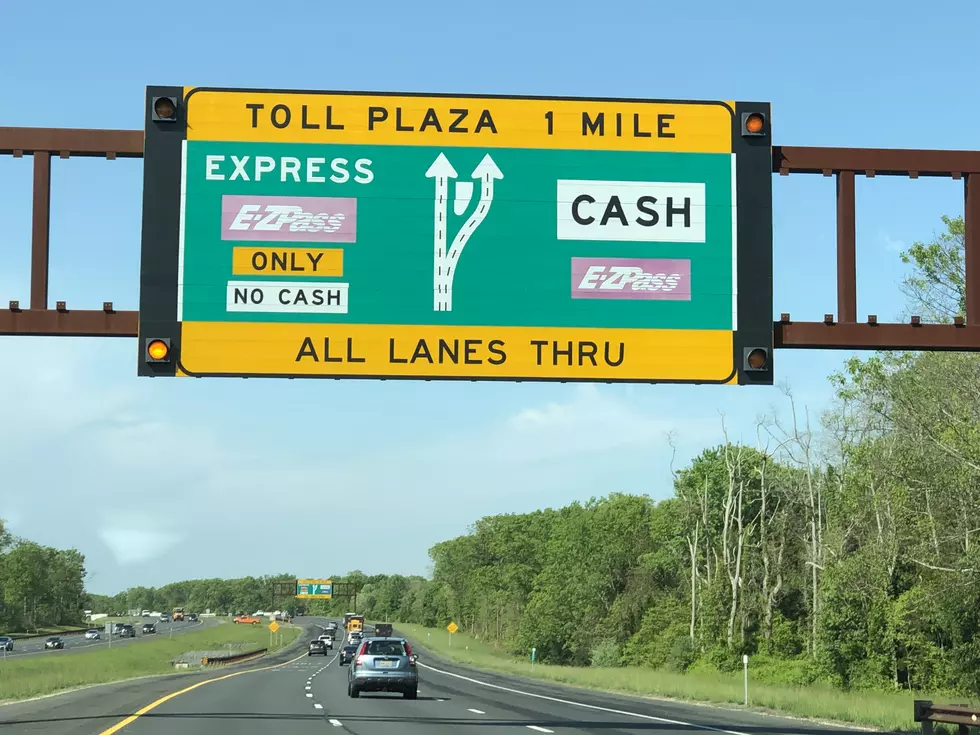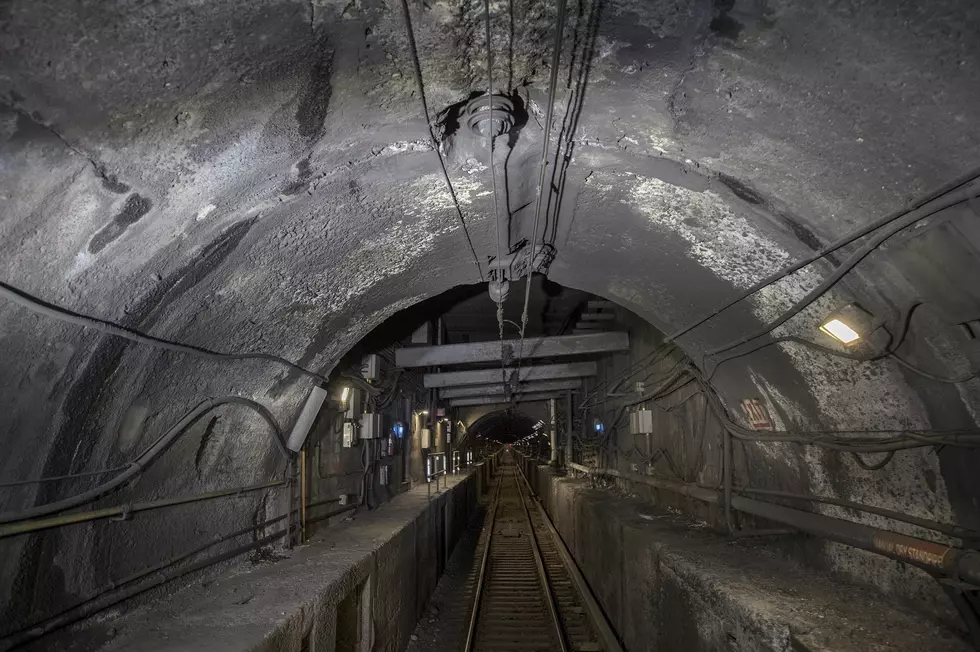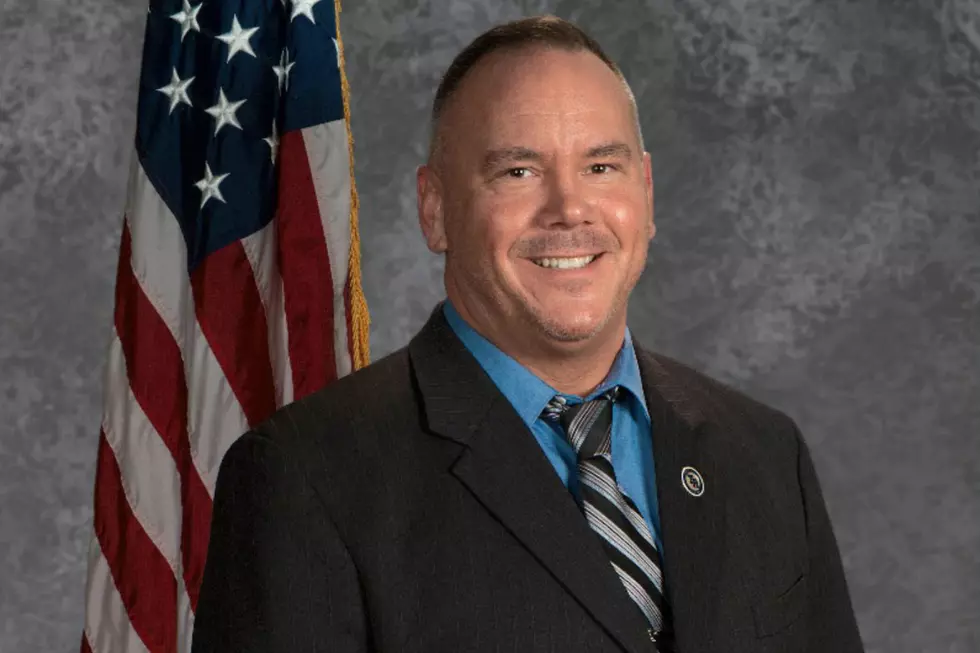![E-ZPass Turns 20 – Is it Foolish Not to Have it? [POLL]](http://townsquare.media/site/385/files/2013/11/ezpass-300x169.png?w=980&q=75)
E-ZPass Turns 20 – Is it Foolish Not to Have it? [POLL]
What fools these mortals be waiting in line to pay tolls – when they could be breezing through with the help of that little plastic device affixed to their windshields or bumpers.
The acid test comes this weekend – just as it would on any given weekend or holiday – as you watch the hoards line up to pay tolls and ask yourself, “why in the world don’t they have EZPass?”
I discovered how easy and somewhat cheaper it made my trip when I was working at a radio station in Westchester. Crossing the Tappan Zee everyday became a nightmare, although once told about the discount I’d get with EZpass, I immediately applied, and haven’t looked back.
And it became even more of a joy when New Jersey entered the realm of EZPass states later in the 90s.
E-ZPass debuted Aug. 3, 1993, at the Spring Valley toll plaza on the New York State Thruway. The thruway was the lone highway to have it until the Atlantic City Expressway and Delaware Turnpike on Interstate 95 both came online in 1998. The Garden State Parkway implemented E-ZPass in 1999, and the New Jersey Turnpike in 2000 completed the conversion to electronic fare collection on New Jersey's major toll roads.
Today, you can drive as far north as Maine, as far south as North Carolina and as far west as Illinois using E-ZPass.
Congress has set an ambitious timetable for having a national electronic toll-collection system in place by mid-2016 for federal highways. E-ZPass, one of the technology brands for electronic tolls, hopes to lead the way in the push across country.
Currently, 25 transportation groups and 15 states are part of the E-ZPass system. Overall, there are 16 million accounts and 25.5 million vehicles using E-ZPass. More than $6.6 billion in annual toll revenue is collected through the E-ZPass system.
A high-speed E-ZPass lane can handle about 2,000 transactions per hour, compared with about 350 for a human toll collector.
About 1,000 toll collectors once worked on the parkway and turnpike. That number has fallen to 200 on the turnpike and 136 on the parkway, according to the New Jersey Turnpike Authority.
The Turnpike Authority has decided to accept bids to privatize toll collection on both roads in hopes of saving millions of dollars.In the meantime, the human toll collectors continue to survive because some motorists embrace the old-fashioned system of manually paying their fares. But not Kim Marie Kielbasa.
Kielbasa said, "I don't like the idea that human toll takers are losing their jobs. But I love not having to sit there and wait to pay the tolls. It's also nice because you get toll discounts for using E-ZPass on some highways."
E-ZPass use is heavy on the turnpike and parkway. Donna Manuelli, chief financial officer of the Turnpike Authority, said nearly 81 percent of turnpike traffic and about 78 percent of parkway traffic use E-ZPass. At peak travel periods, E-ZPass use climbs above 90 percent, she said.
"It's a low-cost alternative compared to manual toll collection. It's just a win for everybody," Manuelli said.
A win, yes, except for the human toll collectors whose ranks continue to be thinned due to the new technology.
However, there still are a few holdouts who'd rather not use it; and the safe bet is that as you travel this weekend, you’ll see plenty of them lining up at toll booths everywhere.
When I breeze through the EZ Pass lane at the Outerbridge, I just shake my head as I view the queue for the cash lanes thinking, "they got to be kidding! What are they waiting for?"
And this - despite the planned toll hike for EZ Pass users at the Port Authority crossings.
Tolls for EZ Pass users on Port Authority bridges and tunnels go up on Sunday.
The cost to use the Lincoln & Holland tunnels, the George Washington, Bayonne & Goethals bridges, and the Outerbridge Crossing goes up by 75 cents at 3 a.m. meaning it will cost cars $9 off peak and $11 peak. The Staten Island Bridges Pass will go up by 25 cents.Cash tolls will remain unaffected.
The increase is part of the Authority’s fiscal health plan that will helps fund a number of projects including rehabilitating the Lincoln Tunnel helix, raising the Bayonne Bridge, modernizations of PATH trains and airport runways and completion of the World Trade Center.
Drivers on the New Jersey Turnpike and Garden State Parkway are safe from any toll increases until 2020. Donna Manuelli, the New Jersey Turnpike Authority’s chief financial officer tells the Press of Atlantic City existing rates will support the authority’s planned projects through at least 2020. Tolls last went up in 2012.
Still in all, don’t you feel it’s foolish to do without it?
More From New Jersey 101.5 FM









